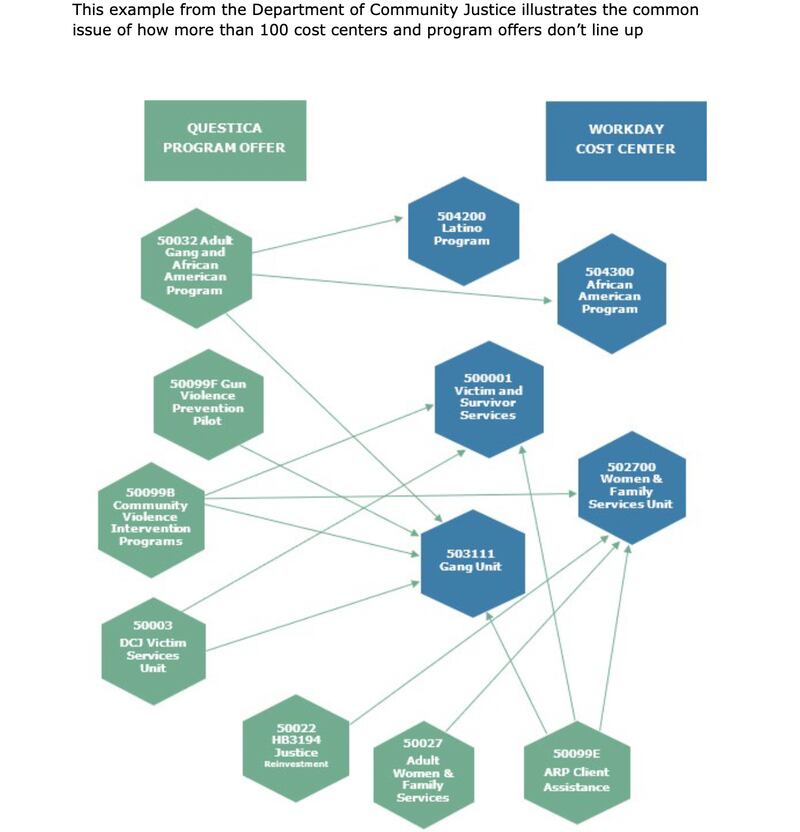Multnomah County Auditor Jennifer McGuirk released an audit today that criticizes county officials for failing to report spending in a manner that is consistent with the way the county budgets.
The county builds its nearly $2.8 billion all-funds budget over eight months, culminating in a slew of what budget officials call “program offers.” (The county’s general fund, over which it has discretion, is $747 million.)
“In fiscal year 2022, there were more than 600 program offers ranging from $20,000 to more than $436 million,” the audit says.
McGuirk’s audit team found that county does a good job of preparing the budget and of tracking expenditures at a high level—but it does not track actual spending at the program offer level.
“The financial system is not set up to report budgeted compared to actual expenditures on a program offer basis,” auditors found. “This means that the county does not publicly report how much it spends at the program offer level—the level at which the Board of County Commissioners makes budget decisions.”
Although auditors found the county follows state law and best budgeting practices otherwise, they said failing to report actual spending of program budgets as they are proposed is a “significant shortcoming.”
The reports commissioners and the public get do show actual spending at the department—i.e., high—level but not for the many programs that make up each department.
The reason for the disconnect, auditors found, is that the county uses different software for budgeting (Questica) than it does for spending (Workday), and Workday reports spending in a different fashion than Questica says it will be spent.
Using the graphic below, auditors illustrated an example in the county’s Department of Community Justice, in which seven program offers in Questica correspond to five cost centers.

The audit did not point to any disasters that have arisen from the incompatible systems and sub-optimal reporting but said officials should make improvements.
“A government should be able to show if it has actually purchased goods and has actually provided services,” auditors wrote. “We believe that to support transparency it should be done at the program offer level–not just at the operating fund level.”
In a response, Multnomah County Chair Jessica Vega Pederson agreed that the board of commissioners and the public should receive reports that track spending to the budget the board approves.
“We agree with this recommendation and are actively working on its implementation,” Vega Pederson wrote.
The audit also looked at the functioning of the various citizen budget advisory committees that provide input on departmental budgets. Auditors found the county is doing a good job of facilitating diverse communities and providing them with easily digestible information—but it often comes too late to be of much use.
“The complexity of the budget process and the short timeline available for community involvement limit the potential for impactful public engagement,” auditors wrote. They recommend that the county get the information to committees sooner, a request Vega Pederson said her response would be part of the work the county’s Office of Community Involvement is currently tackling.
Auditors also recommended the county consider a two-year budgeting cycle, which would allow more time for thorough reporting and robust citizen engagement. Vega Pederson said in response she would ask the county’s top bureaucrats to give that some consideration.
“The Chief Operating Officer, Chief Budget Officer and the Chief Financial Officer will convene to discuss details regarding how such a study could be conducted, and will present that information to the Board of County Commissioners,” she wrote.

